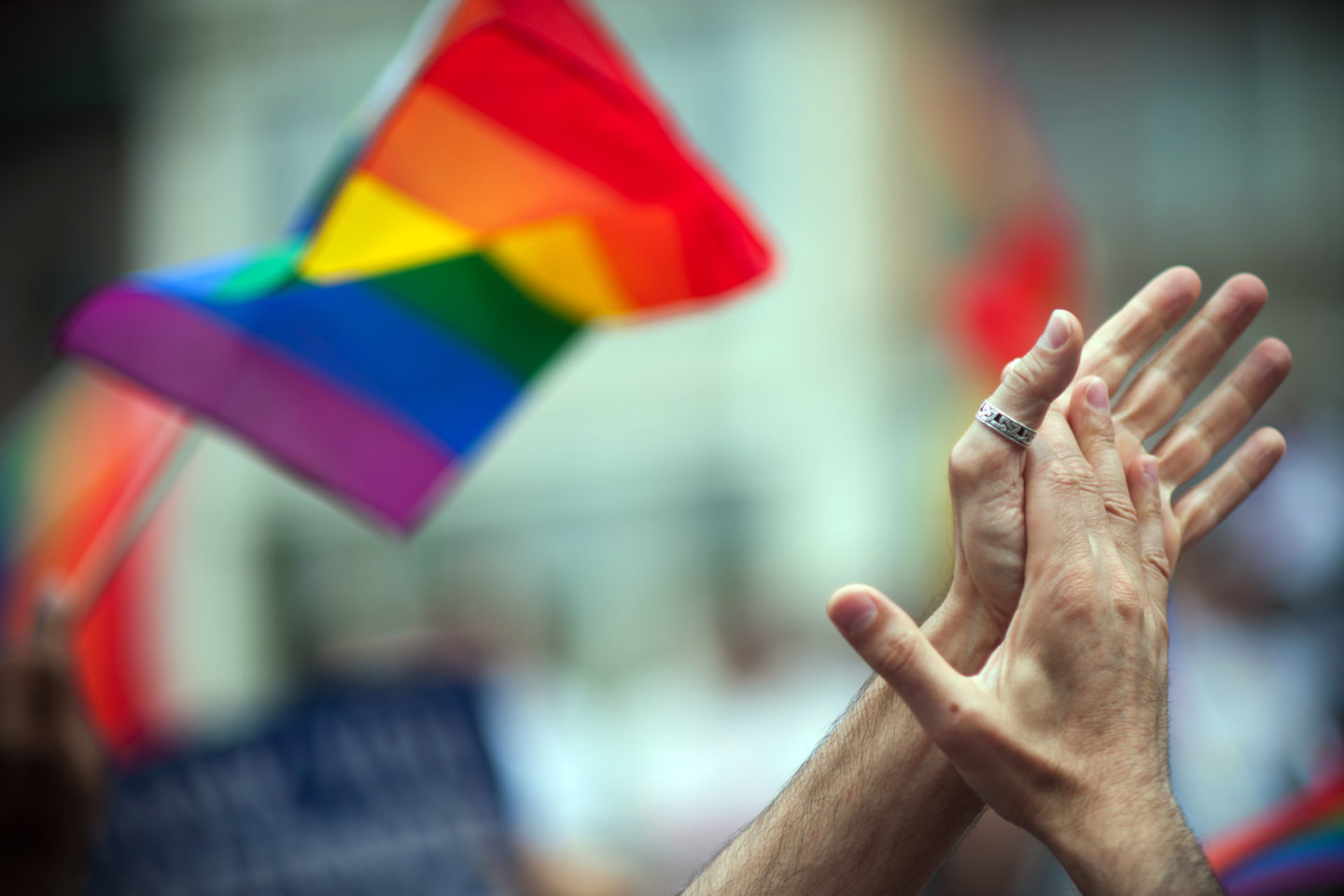In order to understand the full scope of the violence on the LGBTQ community, the PRIDE Act will help gather numbers and fight discrimination.
New York Democrat Representative Sean Maloney has reintroduced a bill that will identify numbers surrounding violent acts on the LGBTQ community. After the Pulse Nightclub shooting, the PRIDE (Provide a Requirement to Improve Data Collection Effort) Act was introduced. The Center for Disease Control and Prevention and the National Violent Death Reporting System were authorized $25 million to collect data about violent crimes in the U.S.
Maloney, the first openly gay lawmaker, told Capitol Hill that the bill was necessary because, “We know who’s made a victim because of their sexual orientation or gender identity.”
In order to better understand how important the PRIDE Act is, we laid out a few basic questions that you may be asking.
How will the bill protect the LGBTQ community?
In order to aggressively combat violence against the LGBTQ community, real numbers and real action are necessary for change. Bullying, discrimination, and hate have been burgeoning rapidly since the election.
According to the Southern Poverty Law Center, around 1,000 hate crimes took place between election day and February 2017. Moreover, there are approximately 52 hate groups that target the LGBTQ community.
“This is the season for Pride and for determination, and part of being determined is being smart, and being smart means you need to have the facts and that data, and that’s all we’re doing today,” said Maloney. “We’re saying we want to know nationally the statistics of violent crimes when it’s related to sexual orientation and gender identity.”
How will the National Violent Death Reporting System help?
The NVDRS collects data from 42 states. However, that data is limited in terms of understanding the victims sexual orientation or gender identity. For example, Florida does not provide NVDRS with information, so the Pulse shooting was not accounted for in the data. Currently, Nevada and Colorado are the two states who collect data on LGBTQ hate crimes and LGBTQ suicides.
2016 was the deadliest year for the LGBTQ community. Even without the loss of 49 lives at the Pulse nightclub in 2016, there was a 17 percent increase compared to 2015. People are paying attention to numbers, though. 27 transgender people were murdered in 2016 and in 2017, 12 transgender women of color have been murdered. The LGBTQ community isn’t going unheard.
David Stacy, the government affairs director for the Human Rights Campaign said, “The LGBTQ community, particularly transgender women of color, continue to face an epidemic of violence.” This bill will properly aid in understanding shifts in crime regarding identity and sexual orientation.
Through death certificates, medical examiner reports, police reports, and crime labs, the NVDRS gains access to their information. The data found is then utilized to inform policies that respond to public health crises.
Wasn’t the LGBT Pride Act already introduced in 2016?
The PRIDE act was halted in 2016 in the House Energy and Commerce Committee. Sean Maloney is anticipating that this time around will be another battle. However, he is aware of the fight. He said, “This is a longterm effort. A lot of us are fighting for stuff that is going to require years to get done. We have no illusions about the uphill fight we’re facing in a Republican-controlled Congress.”
What other alternatives do organizations have?
Since 1998, the Anti-Violence Project have been reporting crimes against LGBTQ communities and HIV-affected communities. However, since the data is only relegated to limited communities, many people are not included across all states. The PRIDE Act will make sure that everyone is counted.
Nevada Representative Dina Titus said that the additional funding for the PRIDE Act will help find data a federal level. At a news conference she said, “Other states do bits and pieces of it as they collect data from local entities, but this funding will allow us to have a more systematic approach and do it the way that Nevada does it.”
How can PRIDE help understand violence in the LGBTQ community?
Since there are over 100 anti-LGBTQ bills, this year marks for a very tense political future. As a result, the PRIDE Act is imperative.
Amit Paley, the CEO and Executive Director of The Trevor Project explains, “Currently no one is able to answer the question of how many LGBTQ individuals die by suicide every year. This is a monumental gap in our knowledge of suicide and keeps us from most effectively targeting prevention and intervention efforts. The saying often goes ‘if you’re not counted then you don’t count’, and it’s time to finally acknowledge the importance of LGBTQ lives and get the data to help save those lives.”
Moreover, suicide is not categorized in data, although the community is impacted by bullying, social stigma, and as a result, mental health suffers. The PRIDE Act would better help the public understand how to build strategies and prevention for specific areas of attention.
The PRIDE Act has been endorsed by the Human Rights Campaign, the Trevor Project, PFLAG, and the Gay and Lesbian Education Network. Passing the bill would reveal accurate data and important numbers to further understand the impact of escalating violence in the United States.
LGBTQ lives matter. Aggressions, bullying, and violence should be documented. Although our political climate is turned upside down for social change, remaining determined and staying educated should be at the forefront for the unforeseeable future.




comments